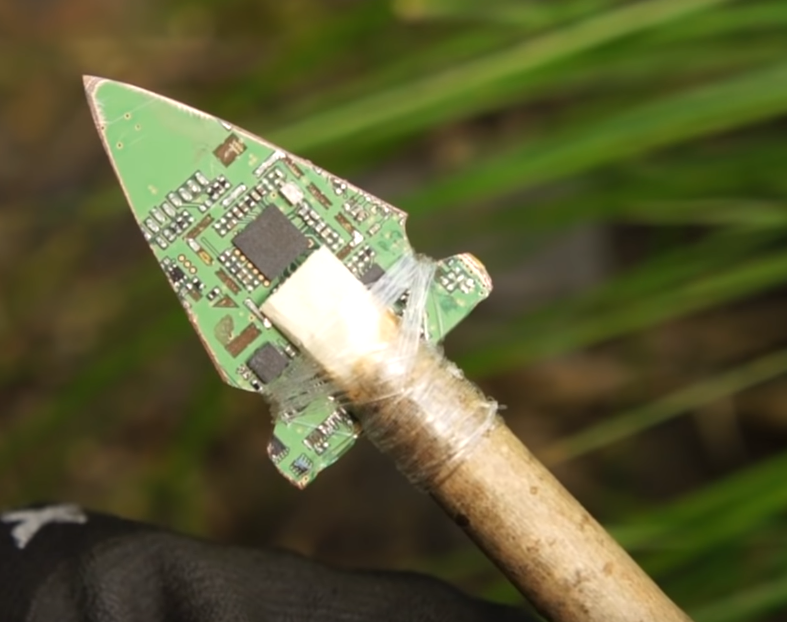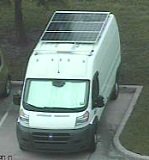I just need to preserve some old data that I have on my computers, so I was wondering what would be the best way to archive stuff long term.
Blu-ray disks ? Multiple HDDs ? What do you guys suggest ?
Self hosting principals aside, is this data actually important? If so, then don’t fuck around with self hosting it. Are you looking for lowest cost? Then don’t waste a bunch of money spinning your own disks.
Amazon glacier to guarantee availability and your own encryption to guarantee privacy.
It’s currently running me about $4/month for around 10tb that I don’t want to lose but just don’t want to deal with. An equivalent HDD solution would be around $500, that’s 10 years to break even assuming zero disk failures and zero personal maintenance time.
Plus it’s guaranteed. Inherent multiple copies, has SLA, and there’s no worry about the service just disappearing. It’s they decide to shut down or raise prices or whatever, you can reevaluate and move.
What would it cost to retrieve though? You probably still have the appropriate cost-effective solution but it’s an important consideration for newcomers to have complete math.
How is it to get the data back?
Can I do it in real time so I could mount it as a media storage or would I need to rent one of the faster S3 tiers?
Depends how important the data is, how long is long term and how budget is budget, but assuming you don’t want to risk losing anything, backup best practice is the 321 rule
3 copies 2 different media 1 off-site
I’d almost always say a cloud provider for your off-site backup, but if you don’t want to do that, it depends how much you want to spend.
There’s no guaranteed do-it-once-and-you’re-done approach here, as all data can degrade. For instance if one of your backup media is hard disks, you’re probably going to want it setup in at least RAID 5 and you want to be on top of swapping out disks when they fail. If you’re thinking of the Blu-ray or tape approach, you’re going to want to periodically check that the media hasn’t degraded. You’ll probably also want to plan to replace the backup media every half decade or so to be extra safe (e.g. BD-Rs have a lifespan of 5-10 years).
Multiple HDD’s and a recurring monthly task to check their health.
Would probably help to know for how long, how much capacity do you need and what budget. Should also be stated external factors play a massive factor on how long a storage device can survive like enviroment, humidity and heat being the biggies
Edit in case I fall asleep: for the budget I usually would go with an external ssd just refresh the data every year or 2 it should be ok for 8ish years maybe even 10. For a write it and forget it method you’ll want m-disc instead which are more expensive but if properly stored will last lifetimes so the failure point will be a usuable drive that can read it. If you decide to go the spinning mechanical drive route make sure to buy 2 (a backup for the backup) since they are a lot more fragile. Gold plated dvds/cds are also another write and forget option but have less capacity than m-discs
Buy used HDDs and configure RAID arrays.
You can get like 32TB of cheap basically ready to fail HDDs and listen to them click away for dirt cheap. I mean like a couple hundred bucks.
Buy some old tower PCs from a school or something. Low specs are fine.
Install Ubuntu server, set up samba and minidlna set up tunnel with cloudflare. Boom.
You could set this up for like $500. I have a setup like this. My HDD has been clicking since install. 2 years strong. I have two backup 16TB HDDs ready to hot swap should either of them fail. Having those backups on hand brings your cost up to about $800, but again, this is for two 16TB HDDs in a RAID config. If you did like 8TB instead, this is all probably $500 with backups.
Western Digital has a bargain bin.
Just use raid6 instead of raid5 as ready to die disks could die simultaneously
I once lost a RAID6 to a faulty power distributor in a server cause (lost 5 out of 12 disks). RAID is not a backup.
But 1 disk failing and the array braking aint either.
This is about real time data not backup which should at best happen daily or bi-daily for really important data.
After my experience with raid5 and the WD Green 2TB drives that were so fragile that the vibrations of 6 drives in the same case is enough to kill them resulting in 2 drives dying at same time wiping out my entire media collection…yeah, use raid6, with another server holding a raid6 array as continuous backup.
Read the data spec for how many in an array?
Literally the reason for WD RED NAS and NAS Pro (beyond some other tech specs).
If you are ready to do some reading I’d recommend ZFS over traditional raid. ZFS makes more guarantees then traditional about file integrity over time.
Do you have a link to WD or other sites selling old HDD’s?
CDs degrade over time and so aren’t the best way to archive data if you know you will need it again. If it’s just an ‘in case’ then it may be ok. Best bet is to buy a USB disk and then keep a second copy of it offsite. Also best practice to not use two of the same manufacturer drive.
encode your data into the dna of an alien world so that it lasts for all time.
Even better, so it mutates into superior data!
I use m discs. It’s like a kind of high quality Blu-ray and should last thousands of years. I think your burner must support it though.
I don’t know about your budget, but I’d do it onto HDDs. They’re cheap and large. But use two and regularly check them like every other month or so. If one breaks, get a replacement. That’s the most simple (if you have an external dock) and cheap solution that you OWN.
Also copy it at least twice onto each in case of corruption. Also use a copier that verifies (fastcopy, teracopy etc)
A couple different threat models to consider, hardware failure vs human failure. Things like RAID can effectively cover the hardware failure side and be fully transparent. Human failure is a bit more tricky. There are a number of old expressions about backups but one that’s good to keep in mind is snapshots are not backups. They’re convenient and easy to automate but if the system making them goes kerplooie they’re pretty useless.
A tiered version is good for off device backup, using diff backups routinely to only copy the new or changed data with a periodic full backup.
Cold disks are great but make sure to test them periodically, nothing worse than looking to restore a chunk of data only to find the backup can’t be read.
Generally speaking obscure formats are not great for long term storage for your chances to read it again years later.
You can read those with a regular blu ray drive. No special hard- or software needed.
Are those… cheap? They don’t look cheap.
About £90 for 4 discs, and £30 for the writer, gets you 400Gb storage.
deleted by creator
Nope
Removed by mod
Honestly? If it’s not that much data just throw an additional copy up on Google Drive.
I appreciate your honest answer. I want to completely own my data, so I would not go the Cloud route. After all the Cloud is basically someone else’s computer.
The data remains yours if you encrypt it. Someone else’s computer saves you all the time and effort of maintaining and monitoring hardware.
You want to use the actual services meant for this. S3 or glacier or something, not just consumer cloud storage like Google drive or Dropbox.
But if it’s encrypted does it matter?
Ask all those that had shit on Megaupload in 2012.
Encrypted or not. Still lost.
Yeah. It should not be your only backup, but it can be one of them.
Lol imagine ever having considered megaupload as your backup solution.
That’s quite fair, personal preference is an important factor.
there are many ways to encrypt locally and store the encrypted data remotely; either a container (like veracrypt), or individual files with a file-based encryption schemes (such as cryptomator) or one of numerous backup or sync utilities with built-in encryption.
Blasphemy in the hallowed halls of FOSS.
Cool, but an actually useful answer.
Yes, that may be an option… except that google can irreversibly lock you out of your account, or they can delete your files if their content scanning think it goes against some of their terms, but also simply there are people who don’t want to lose their privacy to google.
It’s more likely that a Google data center exists in 100 years than your house. If you have a personal aversion to it then I can understand - but, realistically, it’s more likely that an offsite copy on Google Drive exists in 2123 than a random piece of furniture you own - and furniture is pretty damage resistant.
It’s more likely that a Google data center exists in 100 years than your house.
Yes, but it’s more likely that Google will have killed a particular service like Drive. Cf. Google Reader, Hangouts, Data Saver extension, Buzz, etc.
Good for a 3,2,1 backup method but bad for archival. We don’t know if google will even exist in whatever number of years OP wants to archieve for or if the data will be deleted/modified by google themeselves due to some crap policy like their 2 year inactive account one for example. Just too many factors that will be out of OP’s control











